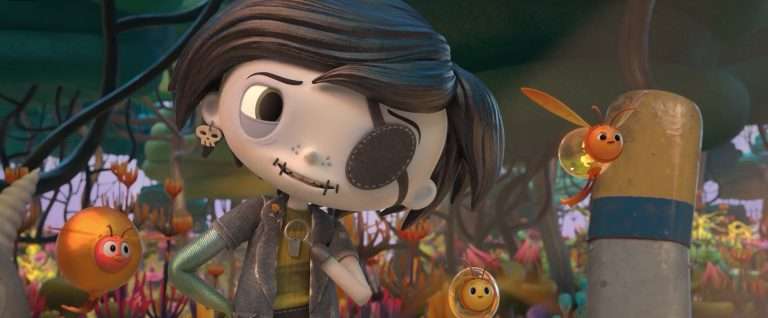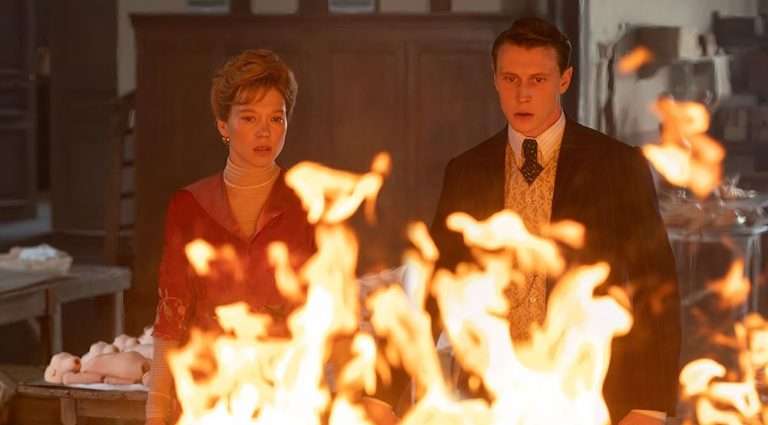Fame has always been at the heart of show business, but it has become pervasive in recent years. Social media has turned the talent hunt into a popularity contest rather than a calibre assessment test. The agencies responsible for finding or securing such talent are more concerned about their reputation and online presence. That’s why people have been increasingly cautious of their public image, since it can shape their entire career or steer it in a whole new direction.
Since fame has become easier to attain, perception has become a new, valued currency. “Serious People” approaches that topic through the tale of a music video director on the verge of landing a groundbreaking opportunity to work with a widely popular artist, which can boost his reputation in the industry.
Pasqual Gutierrez, who co-directed this film with Ben Mullinkosson, plays this part, which is basically a version of himself. In the movie, Pasqual wonders whether he should accept this exciting gig or be by his wife’s side, since she is supposed to go into labor the same week. Working with the said artist seems like a once-in-a-lifetime opportunity, but so is the birth of his first child. Bailing on either can leave him with regret, but the nature and intensity of both would be different.
Pasqual could have easily chosen to be with Christine instead of the shoot if not for his creative partnership with RJ. He had earned his reputation as part of a directing duo. So, the artist expected him and RJ to show up together, as a team, to direct his music video. Bailing on it may not mean much to him, considering the stakes in his personal life, but it might harm his working relationship with RJ. So, to avoid that, he hires someone to replace him during the video shoot. Miguel, the man hired for this job, looks so similar that he may as well pass as his doppleganger.

Also Read: 20 Best Comedy Movies of 2022
The issue, however, isn’t simply about the looks, but of intellect and talent. Can Miguel truly replace Pasqual in this position? If not, his actions can affect Pasqual’s professional and financial prospects. If he makes one wrong move, it can be detrimental to Pasqual’s married life, especially with the added responsibility of raising a child. Miguel, on the other hand, can get a shot at being on a professional set and directing a music video without any knowledge or expertise. Still, if there’s one thing about this business, it’s that you can be successful simply by showing up at the right place at the right time. People can hire you based on their perception of you, irrespective of talent.
Gutierrez and Mullinkosson cover these aspects of the business while following Pasqual and Miguel’s lives on and off set. Its central premise reminded me of an episode of Donald Glover’s “Atlanta,” where a group of women enter a lavish house party, hoping to meet a popular rapper, only to realize that it was a scam. The organizer uses their clout-chasing tendency to earn some money, while luring them with a hope that he never meant to fulfill. It doesn’t matter whether the artist is talented or not. His presence still becomes a status symbol.
“Serious People” analyzes a similar clout-chasing tendency that becomes a weakness in a world where people have to delude themselves into believing that they’re doing something serious in order to stay sane, even if their work is creatively dull or their positions easily replaceable. You get more opportunities by pretending you are a ‘serious person,’ even if you barely understand what you are doing.
Confidence and pretense sail the boat, which can make people lose faith altogether in the creative pursuit. That is the central hook of this film that tiptoes between being a satire and an emotional drama about a married couple on the precipice of a life-altering situation, and a husband about to become a father.

Also Related: The 25 Best British Comedies of all Time
Gutierrez’s script incorporates these fascinating ideas, but after introducing or hinting at them, he does not expand on them enough to be an evocative portrait of creative crisis. It implies Pasqual’s self-sabotaging habits, but does not give us enough information to be absorbed by his psychological turmoil. His character feels woefully passive for a film that positions him as a protagonist, leaving his actions feel illogical without a sufficiently fleshed-out emotional arc. We learn barely anything about Pasqual’s past or his professional life to understand the root of his creative dissatisfaction.
Miguel adds another flavor to this recipe, tingeing Pasqual’s deep-seated melancholy with a burst of unpredictable liveliness. He brings in what I would call a performative nonchalance, where people only pretend to be carefree, since that performance leads them to some reward. In his case, it makes him appear as a chaotic genius. His performance conveys it, much like the rest of the cast, but an overall lack of deeper insight leaves this satire feeling like a mere comedy of errors. It’s entertaining with plenty of clever punchlines that hit the spot, but not fulfilling enough as a unit.
That may be due to the overall directorial approach, which involved combining a fictional narrative, inspired by every cast member’s lives, with improvisation. So, everyone plays a version of themselves, hoping to reach closer to their truth. However, this strain of autofiction loses itself in translation and leaves us to connect the dots with insufficient information on characters. Still, it is refreshing to see a film with a distinct personality, which is a key differentiator for this slight satire.


![Possessor [2020]: ‘BFI-LFF’ Review – A fine future addition to the realm of cult cinema](https://79468c92.delivery.rocketcdn.me/wp-content/uploads/2020/10/Possesor-1-highonfilms-768x432.jpg)


![On Body and Soul [2017] – A Whimsical Atypical Romance set in a Caustic Environment](https://79468c92.delivery.rocketcdn.me/wp-content/uploads/2018/02/cover-768x412.jpg)

